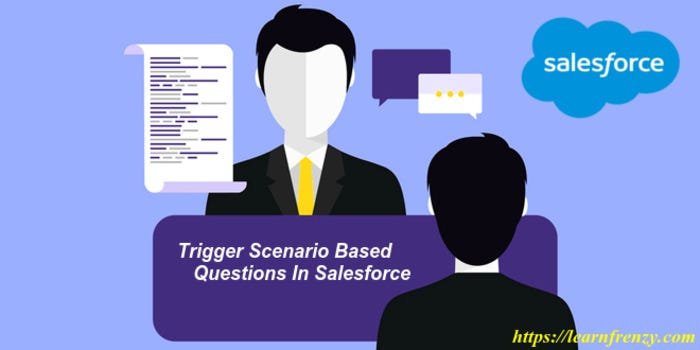Introduction
Life doesn’t have a pause button. Decisions need to be made in the moment, whether you’re leading a team, managing a crisis or just dealing with daily challenges. For those moments when thinking on your feet is key, scenario based questions are your magic wand.
These aren’t just hypothetical “what if” questions; they’re real life challenges in disguise and will make you think, empathize and act fast. From job interviews to leadership training, trigger scenario based questions are the perfect mental workout to get you ready for anything life throws at you.
Let’s get into the value of these questions, how they work and how to craft or answer them like a pro. I’ll throw in some examples to challenge you and hopefully inspire you to think differently.
What are Trigger Scenario Based Questions?
Trigger scenario based questions put you in hypothetical situations where you have to assess a problem, predict the outcome and respond thoughtfully. They mimic real life events and make you think critically, manage your emotions and consider multiple angles.
For example “How would you handle a team member who consistently misses deadlines?” makes you step into a leadership role, balancing accountability and empathy. They’re used in job interviews, employee training and personal development because they test not only what you know but how you think.
Why are Trigger Scenario Based Questions so important?
They Build Confidence Under Fire
When faced with a tough scenario, practicing these questions helps you stay cool and calm. You learn to navigate high pressure situations like solving a puzzle when the clock is ticking.
They Develop Critical Thinking
These questions make you think through situations, predict outcomes and choose the best option. Think of it as mental exercise – flexing your problem solving muscles.
They Encourage Empathy and Perspective
By putting yourself in someone else’s shoes you understand different perspectives. This is key in team dynamics, customer relationships and conflict resolution.
They Get You Ready for Real Life Scenarios
From workplace conflicts to personal crises, these questions help you prepare for what’s coming and turn surprises into manageable situations.
Where Trigger Scenario Based Questions Stand Out
Job Interviews
Recruiters use these questions to test your problem solving skills and emotional intelligence. For example:
“What would you do if a colleague made a mistake that affected the whole team?”
Leadership Training
Managers and team leaders are faced with decisions that can make or break a project. Scenario based training helps them think ahead and act fast.
Customer Service
Service professionals deal with unhappy customers or complex complaints. Scenario questions help them respond with empathy and professionalism.
Disaster Response
First aiders and medical professionals use trigger scenario based questions to practice crisis scenarios so they can act fast when it matters.
Crafting the Perfect Trigger Scenario Based Question
Creating a scenario question requires a mix of creativity and relevance. Here’s how to make yours impactful:
- Keep It Realistic: The scenario should mimic real-world challenges relevant to the audience.
- Add Complexity: Include factors that force the respondent to weigh options.
- Stay Open-Ended: Avoid yes-or-no answers. Let the respondent showcase their thought process.
- Include Consequences: Highlight stakes to make the scenario meaningful.
For example, instead of asking, “What would you do if a customer complained?” say:
“A customer has posted a negative review about your product online. They’re demanding a refund and threatening to take legal action. How would you handle the situation?”
10 Best Trigger Scenario Based Questions
Here are ten powerful questions that challenge critical thinking and decision-making:
- You’re managing a project, and halfway through, a key vendor informs you they can’t deliver on time. What steps would you take to keep the project on track?
Tests adaptability and problem-solving. - A team member approaches you with a personal issue that’s affecting their performance. How would you handle the situation while balancing the team’s workload?
Evaluates empathy and leadership skills. - Your company has just implemented a new software system, but several employees are struggling to adapt. What would you do to ensure a smooth transition?
Assesses change management abilities. - You’re in a meeting, and someone makes a suggestion you strongly disagree with. How would you respond without discouraging them?
Highlights emotional intelligence and communication skills. - A critical deadline is approaching, and your team isn’t making enough progress. How would you motivate them to meet the deadline without sacrificing quality?
Focuses on team management and motivation. - You receive two conflicting requests from different department heads. Both insist their task is urgent. How would you prioritize and communicate your decision?
Tests prioritization and negotiation skills. - You’ve noticed a drop in customer satisfaction over the past quarter. What steps would you take to identify the root cause and improve the situation?
Examines analytical and strategic thinking. - During a public presentation, you’re asked a question you don’t know the answer to. How would you handle the situation without losing credibility?
Evaluates composure under pressure. - A competitor has launched a similar product at a lower price. How would you respond to maintain your company’s market position?
Tests strategic planning and creativity. - You’re leading a brainstorming session, but some participants dominate the conversation while others stay silent. How would you create an inclusive environment?
Highlights facilitation and inclusivity skills.
How to Answer Trigger Scenario Based Questions
When faced with these questions, your goal isn’t to provide a “perfect” answer—it’s to demonstrate your thought process and decision-making approach. Here’s how:
1. Take a Moment to Think
Rushing into an answer can lead to oversights. A brief pause shows you’re thoughtful and deliberate.
2. Break It Down
Use the STAR method (Situation, Task, Action, Result) to structure your response:
- Situation: Summarize the scenario.
- Task: Define the problem or objective.
- Action: Explain the steps you’d take.
- Result: Highlight the expected outcome.
3. Show Empathy and Logic
Balance practicality with empathy. Address the human element of the situation, especially in scenarios involving people.
4. Be Honest
If you’re unsure about something, acknowledge it while emphasizing how you’d seek guidance or additional information.
Using it for Training and Development
If you’re a trainer or manager, these questions can transform your sessions:
- Simulate Real-Life Challenges: Create scenarios relevant to your team’s roles.
- Encourage Group Discussions: Use them to foster collaboration and diverse perspectives.
- Identify Skill Gaps: Analyze responses to pinpoint areas for improvement.
For instance, a question like, “How would you handle a sudden spike in customer complaints during the holiday season?” can reveal strengths and areas for growth in customer service teams.
Anecdote: How Scenario Questions Made a Difference
A colleague of mine once faced a daunting task—coaching a newly promoted manager who lacked confidence. To prepare, we used trigger scenario based questions tailored to real-life situations they might face, like resolving team conflicts or handling underperformance.
Through practice, the manager not only developed strategies but also gained the confidence to lead effectively. Months later, they shared how those scenarios became their “mental toolkit” for handling challenges.
Conclusion
Trigger scenario based questions are more than just a training tool—they’re a gateway to better decision-making, sharper problem-solving, and greater confidence. Whether you’re preparing for an interview, leading a team, or mentoring others, these questions equip you to handle life’s unpredictable moments with poise.
Start practicing today, and you’ll soon find yourself responding to challenges not with hesitation but with clarity and purpose. After all, the best way to prepare for the future is to ask the right questions now.






